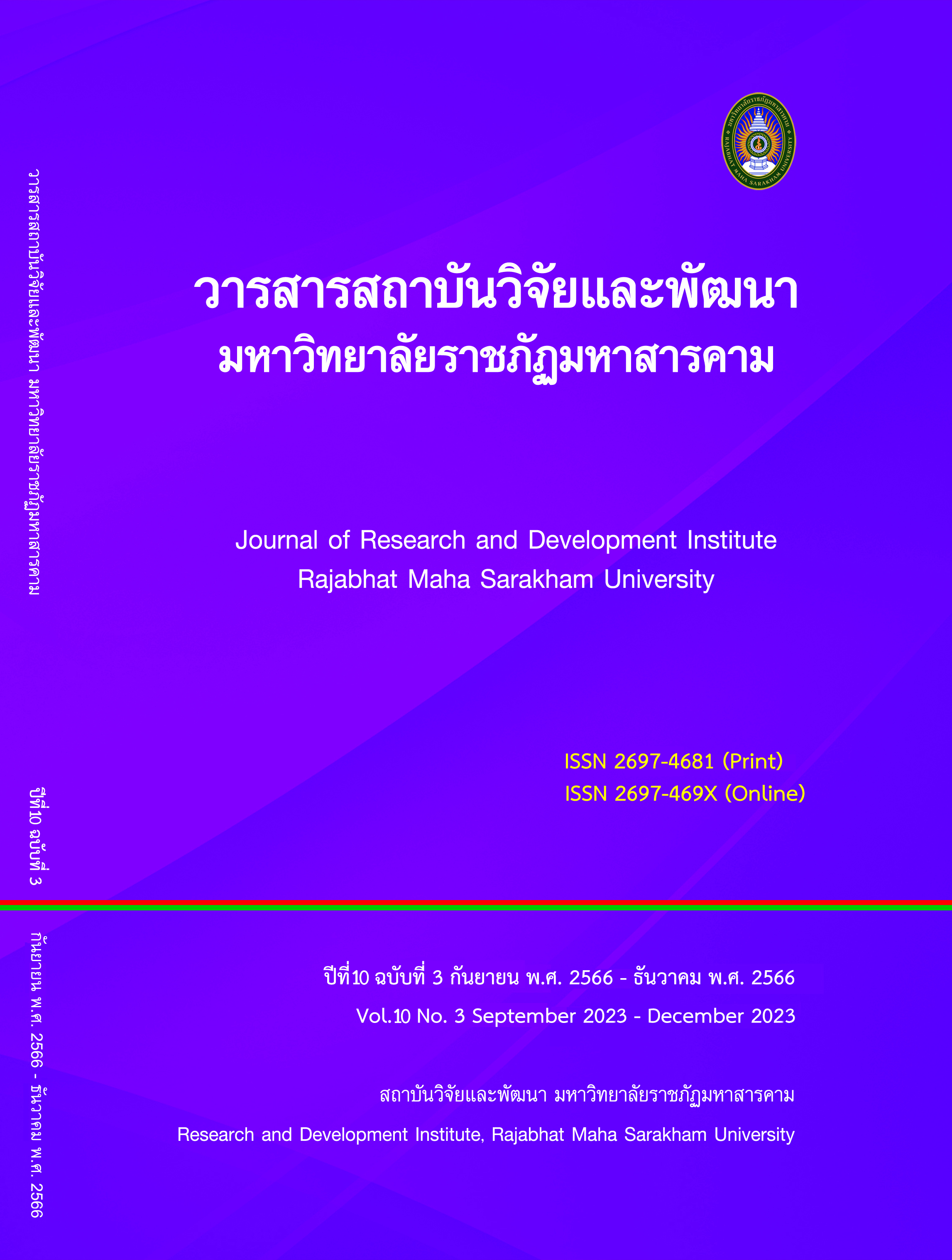The Development Learning Activities on Concentration by using Polya’s Problem Solving Process with Multimedia for Mathayomsuksa 4 students Phadungnaree School
Keywords:
Polya’s problem solving process, Multimedia, Efficiency, Index of effectivenessAbstract
The objectives of this research were to 1) The development learning activities on concentration by using Polya’s problem solving process with multimedia for mathayomsuksa 4 students in the order to efficiency according to 75/75criteria, 2) Study the index of effectiveness of students who received learning activities by using Polya’s problem solving process with multimedia and 3) Study the satisfaction of students. toward learning activities by using Polya’s problem solving process with multimedia. The sample were 41 persons, mathayomsuksa 4 students, Phadungnaree School. They were selected by Cluster random sampling technique. Research is an Action Research. The research instruments were lesson plans, a learning package, 30 items of four - multiple-choice achievement test and 12 items of questionnaire. Statistics used in data analysis were mean, standard deviation and percentage.
analysis were mean, standard deviation and percentage.
Results of the research
- In regard to the efficiency, the research finding indicated that the concentration by using Polya’s problem solving process with multimedia for mathayomsuksa 4 students, in the order to efficiency according to 75/75 criteria (E1/E2 = 79.34/75.53).
- The index of effectiveness of students who received learning activities by using Polya’s problem solving process with multimedia were equal to 0.6746, Shows that students have progress in learning, increasing the percentage 67.46
- The satisfaction of students. toward learning activities on concentration by using Polya’s problem solving process with multimedia was the most (X̅ = 4.85, S.D. = 0.32)
References
Maneerat, W. (2017). Developing process skills for solving chemical problems on the topic of acids and bases using Polya's problem solving process for Mathayom 5 students. Journal of the Science, Technology and Research Unit. environment for learning Srinakharinwirot University.
Ministry of Education. (2017). Indicators and core curriculum Science subject group (revised edition 2017) according to the Basic Education Core Curriculum 2008. Bangkok : Agricultural Cooperatives Association of Thailand Printing Company Limited.
Nilphan, M. (2008). Research methods in behavioral and social sciences. (3rd ed). Bangkok: Silpakorn University.
Nueangchalerm, P. (2015). Science learning approaches in the 21st century. In the Journal of Teaching and Learning Development. 9(1), 136-153.
Office of the Secretariat of the Education Council. (2017). Research report on approaches to Thai education development and preparation for the 21st century. Bangkok : Office of the Secretariat of the Education Council.
Polya, G. (1957) How to Solve It. A New Aspect of Mathematical Method. (2nd ed). Princeton :Princeton University Press.
Poolputtha, A. (2022). Educational research. Bangkok : Taksila Printing.
Suthirat, C. (2014). Curriculum development. Theory into practice. Bangkok : We Print (1991) Company Limited.
Wansiri, S. (2017). Development of learning achievement on the subject of the universe, science learning subject group. Mathayom 3 by organizing 5-step inquiry-based learning with multimedia. National academic conference documents Phetchabun Rajabhat University No. 4. Phetchabun : Phetchabun Rajabhat University.
Downloads
Published
How to Cite
Issue
Section
License
Copyright (c) 2023 สุดารัตน์ จันทร์สระฮาง, นัฏฐารุจา สร้อยกุดเรือ, ธัญญลักษณ์ เขจรภักดิ์, บุษยมาส รัตนดอน, ธนวัชร์ สมตัว

This work is licensed under a Creative Commons Attribution-NonCommercial-NoDerivatives 4.0 International License.
Articles that are published are copyrighted by the authors of the articles







